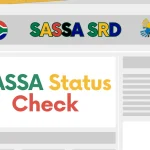Living on a SASSA grant for a month as a family is challenging, but it is possible with smart planning. I’ve learned that budgeting, cutting unnecessary expenses, and finding creative ways to stretch money can make a huge difference. In this guide, I’ll share effective strategies to help you manage your grant efficiently, ensuring your family’s basic needs are met throughout the month.
Understanding SASSA Grants and Their Amounts
Before setting up a budget, it’s essential to know how much each SASSA grant provides. Different grants come with varying amounts, and planning starts with understanding your income.
| Grant Type | Previous Amount (April 2024) | New Amount (October 2024) | Increase |
|---|---|---|---|
| Old-Age Grant (Ages 60-74) | R2,180 | R2,190 | R10 |
| Old-Age Grant (Ages 75+) | R2,200 | R2,210 | R10 |
| Disability Grant | R2,180 | R2,190 | R10 |
| Care Dependency Grant | R2,180 | R2,190 | R10 |
| War Veterans Grant | R2,200 | R2,210 | R10 |
| Child Support Grant | R530 | R530 | No increase |
| Foster Care Grant | R1,180 | R1,180 | No increase |
| Social Relief of Distress (SRD) | R370 | R370 | No increase |
These amounts are limited, so budgeting effectively is key to ensuring financial stability throughout the month.
Creating a Monthly Budget
Managing a SASSA grant requires a structured budget that tracks all income and expenses. Follow these steps:
Step 1: Calculate Total Monthly Income
List all sources of income, including your SASSA grant and any additional contributions from family members or side jobs.
Step 2: Identify Fixed and Variable Expenses
- Fixed Expenses: Rent, electricity, school fees, transport.
- Variable Expenses: Groceries, medical costs, clothing, household maintenance.
Step 3: Prioritize Essential Costs
Ensure that food, housing, utilities, and education are covered first before spending on non-essentials.
Step 4: Track and Stick to the Budget
Use a notebook or budgeting app to monitor spending and avoid impulse purchases.
Practical Ways to Stretch a SASSA Grant
1. Smart Grocery Shopping
- Make a shopping list and stick to it.
- Buy in bulk to save money.
- Compare prices and look for discounts.
- Cook at home instead of buying takeout.
- Grow your own vegetables if possible.
2. Reduce Household Costs
- Cut electricity use: Switch off unnecessary lights, use energy-saving bulbs.
- Save water: Fix leaks, collect rainwater for non-drinking purposes.
- Use public transport: Walk or cycle for short distances.
- Lower communication costs: Use free messaging apps and public Wi-Fi.
3. Manage Healthcare Costs
- Use government clinics instead of private healthcare.
- Invest in a medical aid plan, if possible.
- Stay healthy to reduce medical bills.
4. Cut Education Costs
- Enroll in public schools to save on fees.
- Apply for scholarships and government aid programs.
- Buy second-hand uniforms and books to cut costs.
5. Earn Extra Income
- Start a side hustle: Sell homemade goods, offer services, or babysit.
- Freelance online: If you have skills in writing, graphic design, or tutoring, consider working remotely.
- Recycle and resell items for additional cash.
6. Plan for the Future
- Save for emergencies: Even a small amount set aside each month can help.
- Invest in education: Learning new skills can open opportunities for better income.
- Start small investments: Consider savings accounts with good interest rates.
Frequently Asked Questions (FAQs)
1. How can I make my SASSA grant last the entire month?
Create a monthly budget, prioritize essential expenses, track spending, and cut unnecessary costs. Look for discounts, buy in bulk, and cook at home to stretch your grant.
2. What are the best ways to save money on groceries?
Stick to a shopping list, compare prices, buy in bulk, take advantage of store discounts, and avoid unnecessary purchases. Growing your own food can also help reduce grocery expenses.
3. Are there additional ways to earn money while on a SASSA grant?
Yes, consider side jobs like selling homemade goods, freelancing, babysitting, or recycling items. Online work such as tutoring or graphic design can also provide extra income.
4. How can I reduce my household expenses?
Cut down on electricity and water usage, use public transport, and lower mobile and internet costs by using free Wi-Fi and messaging apps.
5. What financial habits can help me secure my family’s future?
Save for emergencies, invest in education, and explore small investments with good returns. Even saving small amounts regularly can make a difference over time.
Final Thoughts
Living on a SASSA grant requires careful financial planning, but by budgeting wisely, cutting unnecessary costs, and finding additional income sources, you can make it through the month. Prioritize essential expenses, seek out discounts, and plan ahead for the future. With discipline and strategic decision-making, you can ensure financial stability for your family while relying on a SASSA grant.





![SASSA Status Check for Disability Grant [2025] SASSA Status Check for Disability Grant](https://srdcheckstatus.co.za/wp-content/uploads/2025/01/SASSA-Status-Check-for-Disability-Grant-150x150.webp)
